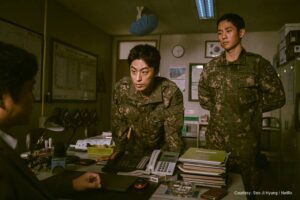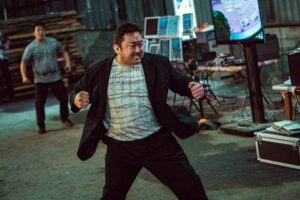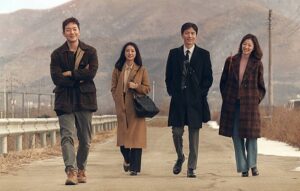“A Killer Paradox” (살인장난감)

By Jae-Ha Kim Substack February 15, 2024 ☆☆☆☆ Lee Tang (played by Choi Woo-shik) Jang Nan-gam (played by Son Suk-ku) ↑Note: Korean names denote the surname followed by the given name. In Korean, the literal meaning […]






